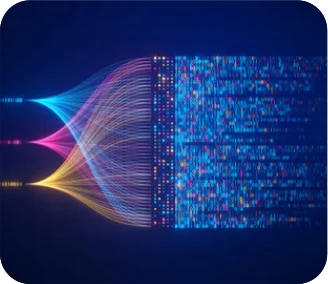The Future of Artificial Intelligence: Shaping a Smarter Tomorrow
Understanding AI: More Than Just Automation
At its core, AI is about creating machines that can think, reason, and learn. Traditional software follows explicit instructions, but AI systems use data to train algorithms that recognize patterns and improve over time. This learning process — known as machine learning (ML) — allows systems to continuously evolve without human intervention.
Take, for example, voice assistants like Alexa or Siri. Each time you interact with them, they learn a little more about your preferences, speech patterns, and context — getting better with every use.
AI in Everyday Life
AI has quietly become part of our daily routines in ways we often don’t realize:
- Healthcare: AI algorithms can detect diseases from X-rays and MRIs with remarkable accuracy, sometimes outperforming human specialists.
- Finance: Fraud detection systems powered by AI analyze millions of transactions per second to identify anomalies.
- Education: Adaptive learning platforms personalize study materials to suit each student’s strengths and weaknesses.
- Retail: AI-driven recommendation systems boost sales by understanding consumer behavior better than ever before.
In each of these cases, AI acts as an enhancer — not a replacement — empowering professionals to make faster, smarter, and more informed decisions.
The Rise of Generative AI
One of the most exciting recent breakthroughs is Generative AI, which can create entirely new content — from text and code to music and artwork. Tools like ChatGPT, DALL·E, and Midjourney have revolutionized how creators, developers, and businesses operate.
Generative AI is also transforming industries by:
- Automating content creation and customer support.
- Assisting in software development through intelligent code suggestions.
- Accelerating design and innovation with AI-generated concepts.
It’s creativity and efficiency, powered by algorithms.
Challenges and Ethical Considerations
While AI’s potential is vast, it also raises critical ethical and societal questions.
How do we ensure AI systems remain transparent, unbiased, and accountable?
How do we balance automation and employment?
AI models are only as good as the data they learn from — if that data carries bias, the outcomes will too. Responsible AI development, therefore, requires human oversight, diversity in datasets, and clear governance frameworks.
The Road Ahead
The future of AI lies not just in its technical evolution, but in how we choose to use it. The next decade will see AI powering smarter cities, autonomous vehicles, and personalized healthcare — but also supporting sustainability by optimizing energy use and reducing waste.
The key will be collaboration — between humans and machines. AI will handle data-heavy decision-making, while humans provide creativity, empathy, and ethical judgment. Together, they can unlock possibilities far beyond what either could achieve alone.
Conclusion
Artificial Intelligence is not here to replace humanity — it’s here to amplify human potential.
From revolutionizing industries to solving global challenges, AI represents one of the greatest technological leaps of our time. The question isn’t whether AI will shape the future — it already is. The real question is: how will we shape AI?






